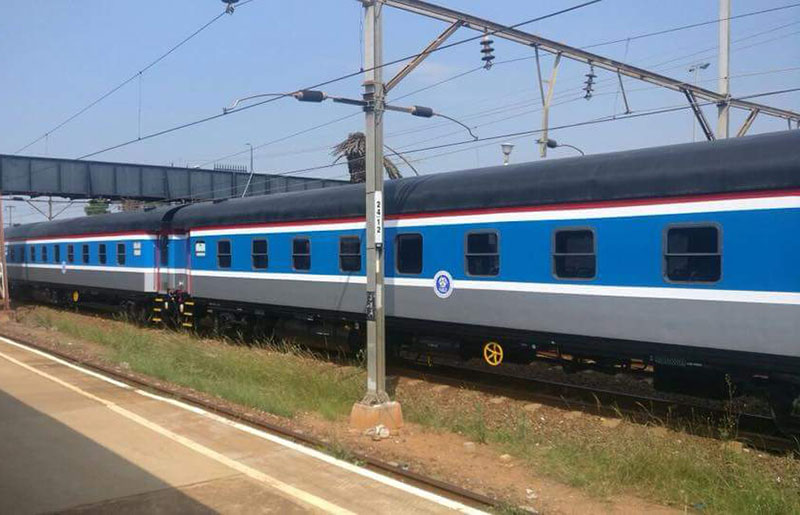NRZ to cut on hired wagons, locomotives
NRZ requires US$400 million for recapitalisation in the short-term and is presently seeking a strategic partner.
THE National Railways of Zimbabwe (NRZ) is working on a framework to reduce wagons and locomotives hired from third parties as part of a broader scope to save the organisation millions of dollars in foreign currency.
Due to resource gaps NRZ faced in recent years, the parastatal had resorted to leasing equipment such as locomotives, wagons, and passenger coaches.
For example, in 2018 the country’s strategic transporter entered into an interim arrangement with South Africa’s railways operator, Transnet, to lease 13 locomotives, 34 passenger coaches and 200 wagons from Transnet.
Acting general manager, Mrs Respina Zinyanduko, said NRZ, which is undergoing a restructuring exercise, was pushed by historic challenges to hire some equipment like locomotives from third parties.
“So, we did an analysis of the profitability of these locomotives and the analysis of each and every agreement that we have.
“And those that were not profitable, we then had to terminate and also those that were not fully utilised but were having constant breakdowns like the five (locomotives) that we returned to Transnet, and that will save us a lot of money,” she said.
“We have since started the process of advising Transnet that we are going to terminate the wagon lease agreement so that we can then save the forex that we are generating because each wagon is being charged US$32 per day.
“If you do your calculations, we need a very good turnaround of those wagons for us to realise profit. In most cases some of the challenges that they face when moving cargo out of the country were challenges to do with interchange that were beyond NRZ’s control.”
For example, when moving cargo to Beira, CFM, another State-owned rail operator in Mozambique, would take time to offload and as a result NRZ ends up operating at a loss because of hired equipment.
“So that’s why we are looking at the option of having our own export-fit wagons and we have already started that project. And we have also managed to repair about 100 fuel tankers,” said Ms Zinyanduko.
“NRZ has fuel-supply clients who use tankers so for the past years we were using CFM tankers and when you use fuel tankers from another railway company, then it means we are not earning the revenue that you require as an organisation, so we decided to invest in that project.”
Some of the NRZ fuel tankers have already been repaired and dispatched to the company’s operations, a move expected to boost its revenue inflows going forward.
NRZ requires US$400 million for recapitalisation in the short-term and was presently seeking a strategic partner.
In 2019, Cabinet cancelled the US$400 million that NRZ and the Diaspora Infrastructure Development Group (DIDG) /Transnet Consortium had entered into in 2017.
This was on account that DIDG lacked financial capacity to implement the project after the infrastructure development group and Transnet parted ways.
Following the termination of the US$400 million recapitalisation project, DIDG filed a US$236 million lawsuit against NRZ. However, DIDG has pleaded with the Government to reconsider resuscitating its US$400 million NRZ recapitalisation project.
Mrs Zinyanduko said they expect to save a lot of foreign currency by reducing the number of hired equipment.
“Going forward, we expect that through this move (reducing the number of hired equipment) we are going to significantly reduce our indebtedness to Transnet because these locos were accruing rentals on a monthly basis,” she said.
“We are also looking at a situation where we need to reduce our wagons that are hired from third parties because our wagons are said not to be export-fit.”
At the moment, she said NRZ has 160 wagons that were being hired from South Africa and the rail entity has begun making its wagons export-fit.
Mrs Zinyanduko said such a project was ongoing with 30 wagons having already been made export-fit and dispatched to operations. NRZ targets to have 200 export-fit wagons by the end of January next year.-The Herald










